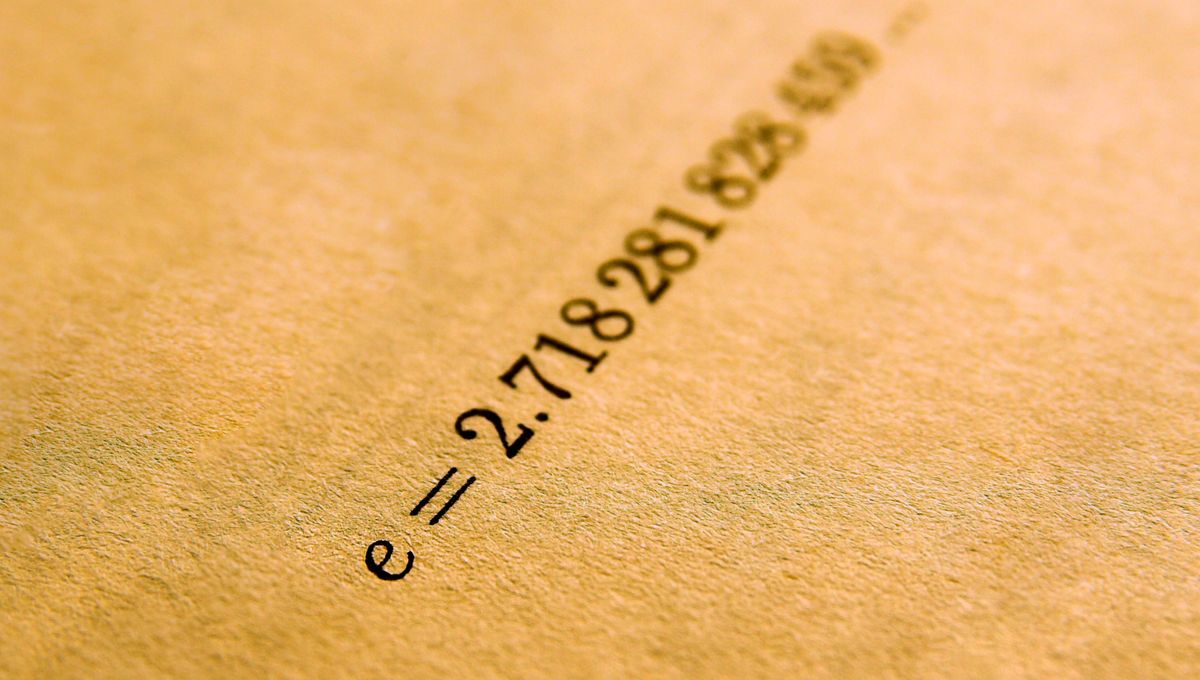
The universe appears fond of special numbers. Some come from geometry, like π or the square root of two. Some, like the fine structure constant, connect stars being able to shine to why buttered bread falls more often on the buttered side. Then there is e, or Euler’s number: a mathematical constant found across fields from quantum mechanics to finance to zoology.
As a number itself, it might not look like much. Its numerical value is 2.71828… and goes on forever, being an irrational number. Just like π, e is a transcendental number, meaning that it is not a solution of any type of polynomial equation. Just its mathematical properties make it a very special number – but its presence elsewhere truly makes it incredibly influential.
The place where e becomes most useful is when it comes to growth, change, and decay. The number e is used as the base of the exponential function. The exponential decay of radioactive elements is given by a very simple equation that contains e and depends on the time and a few other constants related to the nature of the element and how much of it you had in the first place.
Are you waiting for your cup of coffee to cool down? Well, the rate of heat loss will be a similar exponential decay formula. There is a different relationship between the temperature of the environment, the coffee, and the heat transfer coefficient – but underneath the hood of reality, there is this important number, e.
For exponential growth in population – for example, the growth of bacteria – we also end up once again with this exponential relationship. Similarly to this, the spread of a disease where no immunization is available (such as at the beginning of the COVID-19 pandemic) will spread exponentially at first – but it’s not just biology. A nuclear chain reaction, which powers both nuclear fission reactors and nuclear weapons, is based on exponential growth.
We can find even more outlandish connections, showing just how fundamental this number is. Imagine yourself as a betting person, picking a single number on a roulette. The probability of you winning that game is 1/37. But if you play 37 games, the probability that you have lost every single time is 1/e. A ratio of e can also be used to calculate the temperature of the whole universe based on the cosmic microwave background. It is truly everywhere!
This number is just so very special – so just like you remember 3.141, you should make a note of 2.718.
Source Link: The Special Number That Governs Growth, Change, And Decay In Nature